Traditional media cannot be underestimated when it comes to its contribution towards the negative narrative surrounding internet use in Africa. For this reason, Internet4Good involved journalists, media practitioners and enthusiasts, and broadcasters in Accra, Ghana for a 2day workshop. This workshop was aimed at building the capacity of 23 selected participants from seven regions in Ghana.
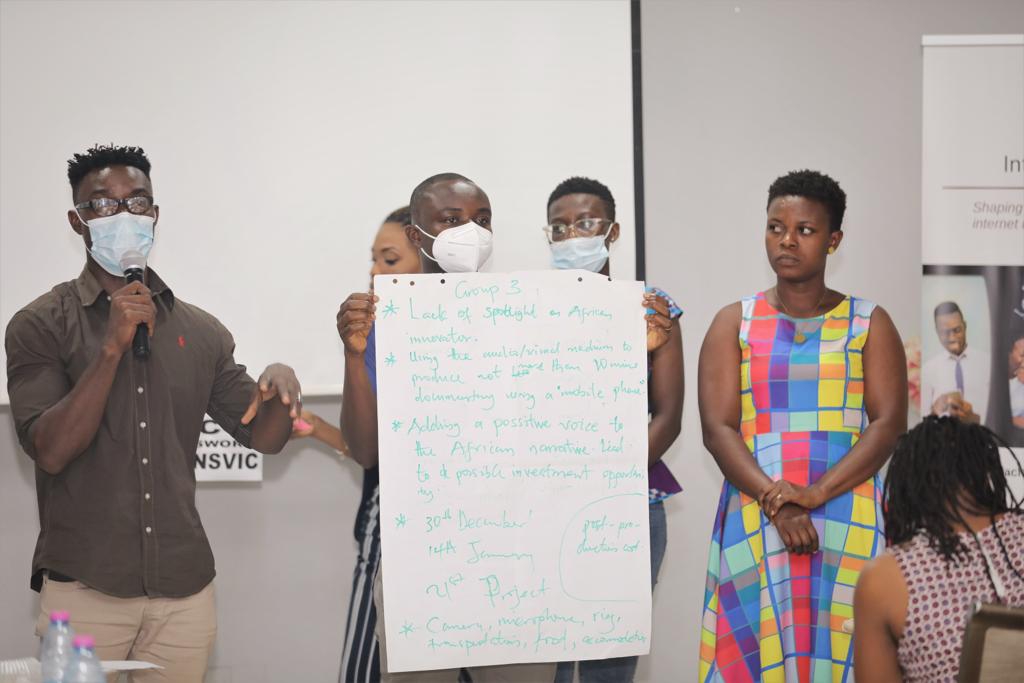
The workshop had seasoned experts who addressed the issues that shape the one-sided narrative when it comes to African youth and internet use, and how they are disproportionately implicated in cybercrime within local and global media.
One of the facilitators, Dr Tanko Musah, a Lecturer at the Ghana Institute of Journalism (GIJ) and a legal practitioner, enlightened participants on cybercrime and its portrayals in global media. He reiterated the fact that cybercrime exists in most countries and it is something to be frowned upon. However, why then is that all that seems to come to mind to the rest of the world when the African youth is mentioned is cybercrime?
“No African country makes the TOP 20 cut when it comes to cybercrime”, he said.
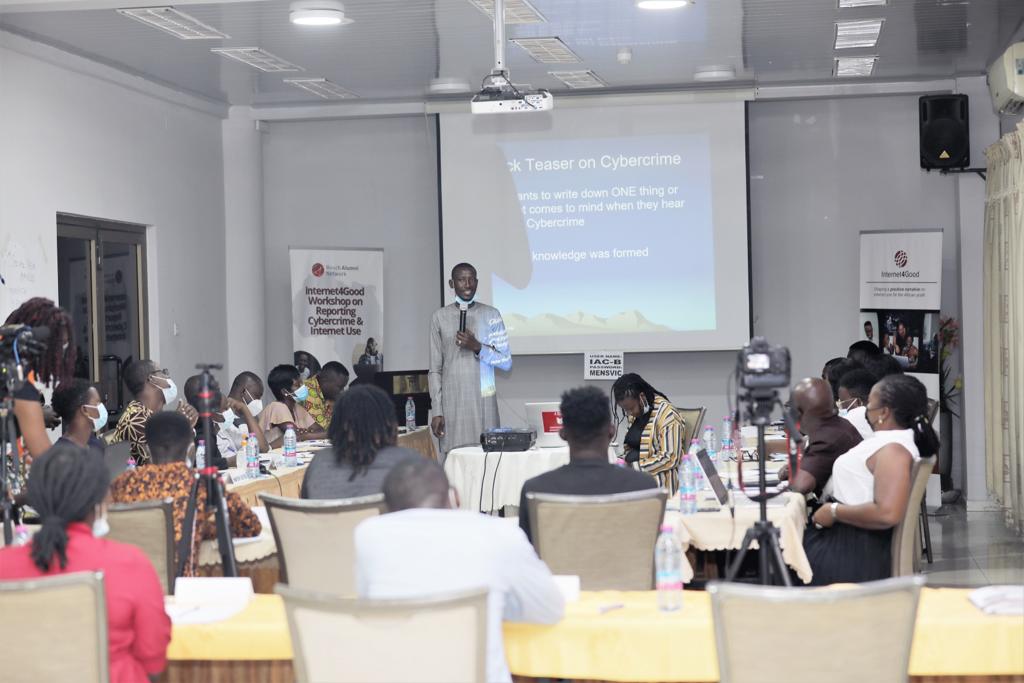
He urged all the media to use advocacy development and community journalism to help reshape the existing narrative.
Ms Caroline Anipah, Ghana Country Program Officer and Editor at Dubawa, also enlightened participants on the need for digital safety especially as media practitioners. She spoke extensively on fact-checking and its importance. Ms Anipah practically demonstrated tools and mediums to use for fact-checking.
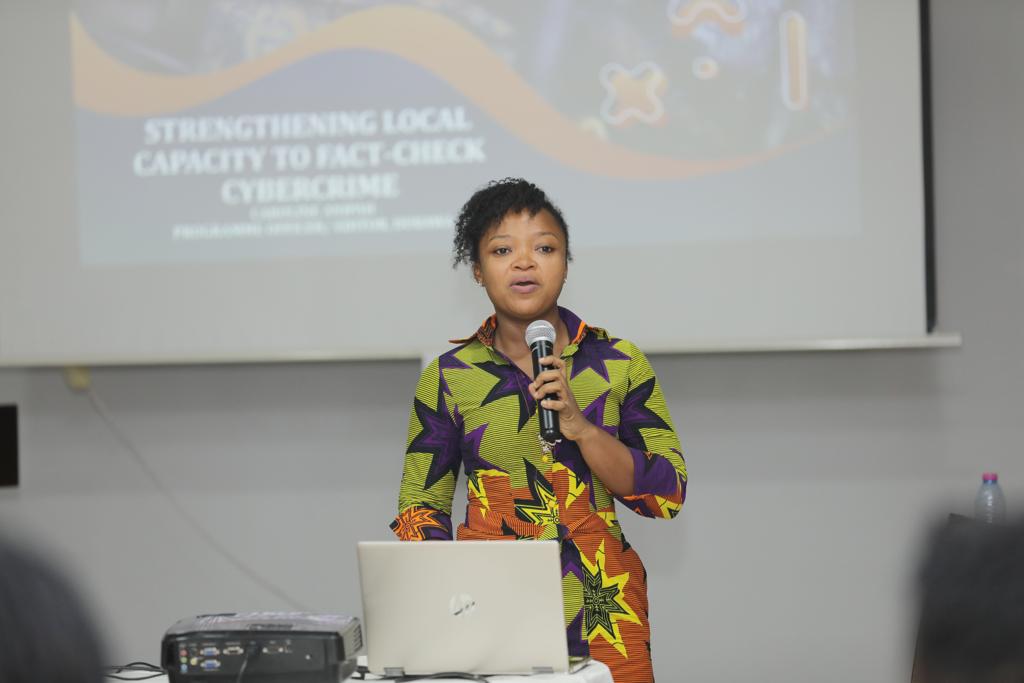
The final speaker at the workshop, Ms Jessica Hagan from Africa No Filter also shared with the participants opportunities available for freelance media practitioners. She spoke about the opportunities Africa No Filter offers to journalists that are willing to write and portray the good stories of Africa defeating the known stereotype that “only bad news sells”. She educated participants on how to write objectively, avoiding biases and lack of context in their write-ups.
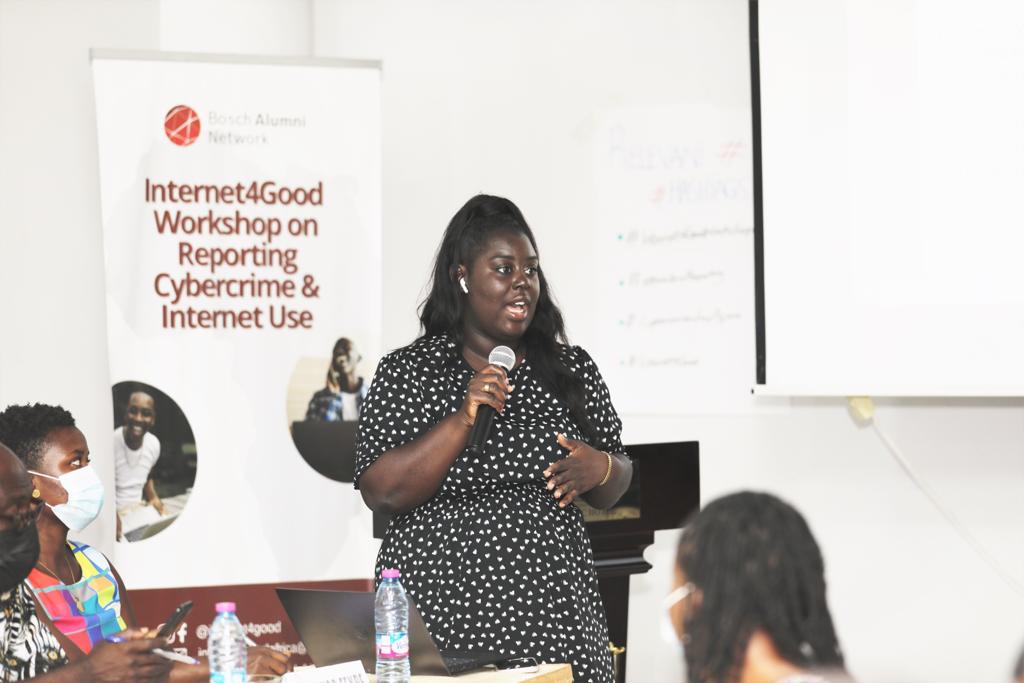
The Internet4Good (I4G) team also presented the participants with an opportunity to collectively access a €1000 writing grant. Participants were divided into 4 groups (€250 per group) where each group was tasked to come up with a collaborative media-related project that seeks to challenge the narrative of African youth using the internet for non-profitable and illegal activities only.
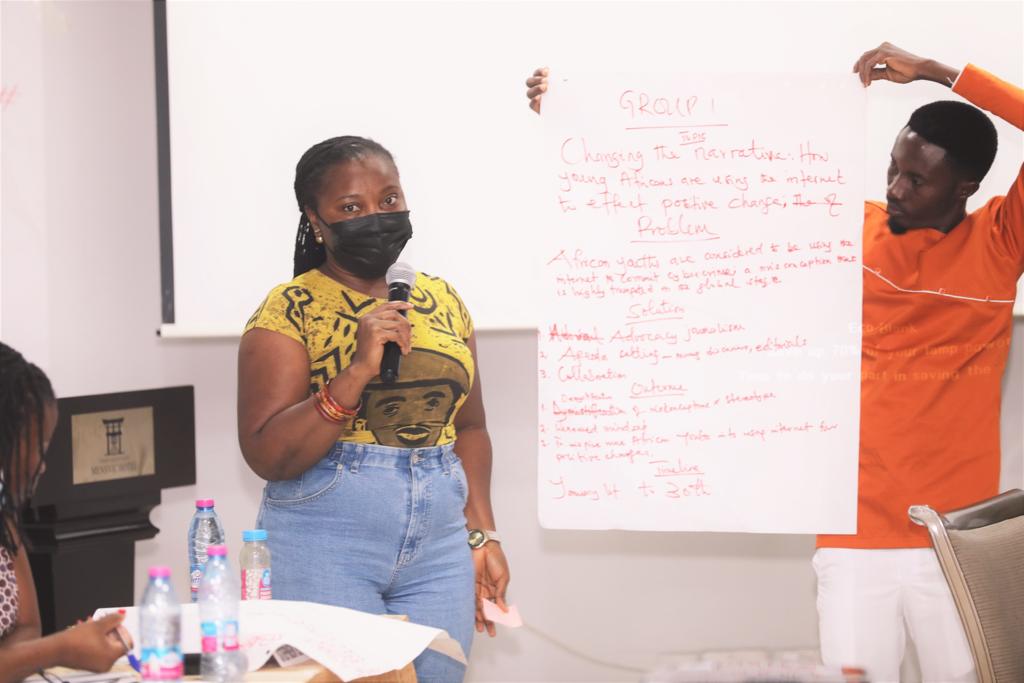
Participants have up to two months after the workshop to bring their ideas to fruition with assistance from the I4G team through a designated Team Advisor. This project has fostered an active online community amongst participants even after the workshop. This further emphasizes why collaborative networking is a part of how we plan to achieve our mission and vision at I4G.
In the end, the workshop sounded a wake-up call to all participants. “I’m going to be more aware and cautious of what I put out there and take responsibility for being a part of the problem,” One participant said.
Most participants referred to the workshop as the first of its kind and expressed a desire for it to extend beyond two days and be organized annually.
For the I4G team present, this was an ultimate experience and long-awaited due to Covid-19. But in all, this event has opened room for many more ideas, collaborations and serves as a benchmark to replicate in other African countries.
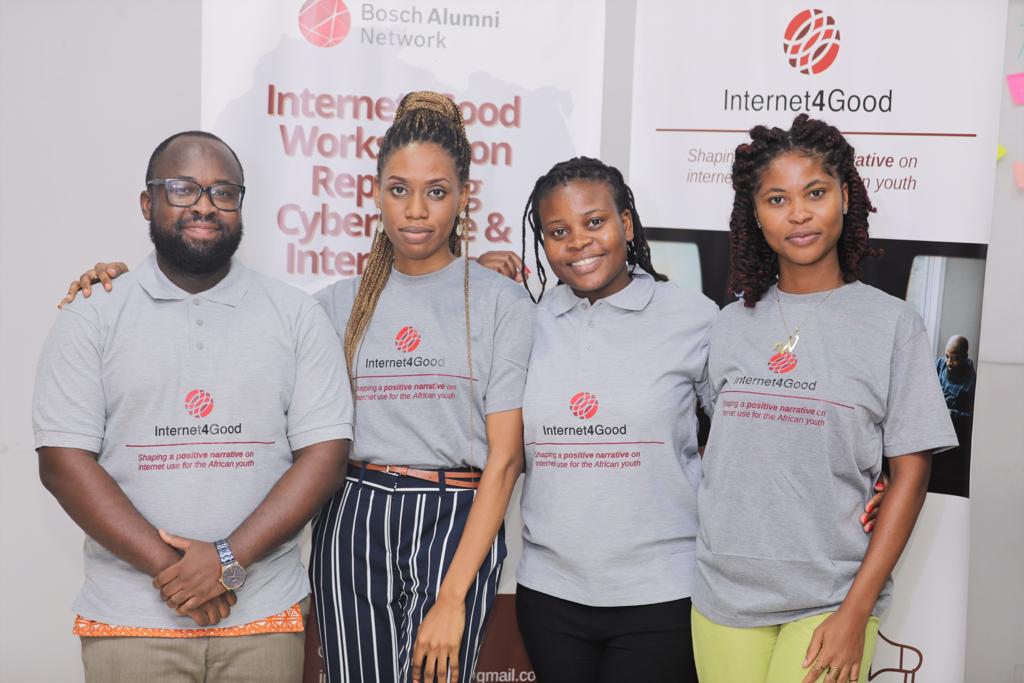
A very big thank you to the Bosch Alumni Network, the participants, friends and partners of Internet4Good For making this happen.